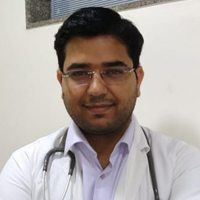Pulmonology is the field of medicine that deals with diagnosing and treating diseases of the respiratory system. Similarly, other conditions that concern the lungs and other organs that are involved in the breathing process also come under pulmonology. Doctors who have expertise in this field are known as pulmonologists. If you’re experiencing respiratory problems, visiting a pulmonologist near you can help you.
Overview of Pulmonology
Pulmonology is a field that focuses on the diagnosis and treatment of respiratory system problems and diseases. The several parts of the respiratory system that a pulmonologist deals with are:
- Mouth
- Diaphragm
- Lungs, including bronchioles and alveoli
- Bronchial tubes
- Throat (pharynx)
- Nose
- Sinuses
- Voice box (larynx)
- Windpipe
Who Qualifies for Pulmonological Treatment?
If you are suffering from a respiratory health condition, your primary care physician will refer you to a pulmonologist. Such a condition can include COPD, asthma, or pneumonia. For contacting a pulmonologist, you should look for a pulmonologist near you.
Request an appointment at RJN Apollo Spectra Hospitals, Gwalior
Call : 18605002244
Why Is Pulmonological Treatment Conducted?
Pulmonologists can treat respiratory system-related conditions. Some of the common respiratory conditions are:
- Asthma- A chronic condition that involves inflammation resulting in the blockage of airways.
- Tuberculosis (TB)- A serious bacterial infection in the lungs leads to prolonged coughing with instances of blood in phlegm, and chest pain.
- Occupational lung disease. Long-term exposure to irritating or toxic substances can result in multiple respiratory lung diseases.
- Pulmonary hypertension. High blood pressure happens in this condition in the lungs arteries.
- Cystic fibrosis- Production of thick and sticky mucus that causes breathing difficulties.
- Bronchitis- A condition that involves inflammation (or swelling) of bronchial tubes due to infections caused by a virus or bacteria.
- COPD- Chronic obstructive pulmonary disease(COPD) is the damage or blockage of the lung's airways, usually caused by long-term exposure to irritants.
- Emphysema- Involves damage to air sacs walls, resulting in their overstretch or collapse.
- Interstitial lung disease- Scarring or fibrosis of the lungs occurs in this condition.
What are the benefits of Pulmonological Treatment?
There are several benefits of pulmonological treatment pertaining to various conditions of the respiratory system. Pulmonologists treat respiratory conditions that result from:
- Infections
- Structural irregularities
- Depression and anxiety
- Tumors
- Inflammation
- Behavioral problems
- Autoimmune conditions
- Social stresses
What are the Risks And Complications Involved In Pulmonological Treatment?
The different risks associated with pulmonological treatment are:
- Bleeding
- Pneumothorax (also called collapsed lung)
- Oversedation, which can lead to pneumonia
Conclusion
Therefore, if you are suffering from a temporary respiratory condition, you might not need to visit a pulmonologist. For instance, conditions like cold or mild pneumonia. However, if your symptoms do not get better and become severe, or the condition turns into a chronic one, you must definitely visit a pulmonologist near you. They will diagnose your condition and find out the cause of your symptoms. Similarly, you will get the best treatment for your condition that may include lifestyle changes, prescription medications, and others.
Yes, they can. They diagnose and treat various conditions pertaining to the respiratory system. Thus, it also includes persistent cough, whether acute or chronic.
You may see a pulmonologist when you are suffering from lung conditions like asthma, sleep apnea, pulmonary hypertension, lung cancer, tuberculosis, etc.
The various types of Pulmonology subspecialties are: Neuromuscular disease Interventional pulmonology Sleep-disordered breathing Interstitial lung disease Lung transplantation Critical care medicine Obstructive lung disease
You will have to first answer the questions they ask regarding your symptoms, and they can also ask for a physical exam if the need arises. In order to make the diagnosis, they may order tests to prescribe you the proper treatment. The tests may include blood work, a CT scan, or a chest X-ray.
Many tests come under Pulmonology, including biopsies, imaging tests such as chest X-rays, chest ultrasound, and chest CT scans. Further, there are sleep studies and pulmonary function tests such as spirometry, Lung volume tests, Arterial blood gas test, Fractional exhaled nitric oxide test, Pulse oximetry, and more.
Our Doctors
DR. UJJWAL SHARMA
MBBS,DTCT(CHEST & TB...
| Experience | : | 4 Years Experience |
|---|---|---|
| Speciality | : | Pulmonology... | Location | : | Vikas Nagar |
| Timings | : | Mon - Sat : On Call... |
Our Top Specialities
NOTICE BOARD
CONTACT US
CONTACT US
 Book Appointment
Book Appointment



.svg)
.svg)
.svg)
.svg)








